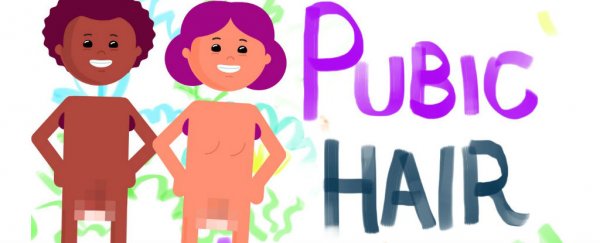It might be more popular now than ever before, but humans have been removing their pubic hair since at least the time of the ancient Egyptians. Over the past 20 years, research has shown that pubic hair removal is rapidly becoming the norm in Australia, the US, and the UK, with one study of over 1,000 students in the US finding that 96 percent of females and 87 percent of males had removing most or all of their hair in the past months. But is this mainly superficial habit good or bad for us?
As the latest episode of AsapSCIENCE explains, humans lost their thick coating of body hair between 120,000 and 70,000 years ago, after the last Ice Age. Since then, we've become the only mammals in existence to have long, coarse pubic hair, so… great job, us?
What's the point of it, I hear you ask? Well, researchers think that because pubic hair appears after puberty, it could act as a visual signal to other humans that we've reached reproductive age (which was obviously a whole lot more useful to our prehistoric ancestors than it is today). It could also help to protect our skin from the serious friction than can occur during sex.
Another - slightly more gross - hypothesis is that we retained our pubic hair to deal with sweat. Humans have two types of sweat glands - one that secretes mostly water and salt (the eccrine gland), and one that secretes various proteins, lipids, and pheromones (the apocrine gland).
Sweat from the apocrine gland is the only type emits a strong odour, and this gland is only found in our armpits and pubic area. So is it a coincidence that those are the only two places on our body (besides our heads) that still host thick coatings of hair? As the boys from AsapSCIENCE explain, there might be a very good reason for why we have hair in areas that emit pheromones.
So what happens when we shave, wax, laser, thread, or electrolysis it all away? Well, on the plus side, you've got decreased instances of pubic lice (but no, they're not becoming extinct with the rise of pubic hair removal), and on the minus side, you've got horrible rashes, ingrown hairs, and itchiness.
And that's not the worst of it - the method you use to remove your hair could increase your risk of getting sexually transmitted infections, such as gonorrhea, chlamydia, and HPV.
So what's the best thing to do with your nether regions? I'll let the episode of AsapSCIENCE above explain that one, and while you're at it, you might as well learn about why we have boobs:
